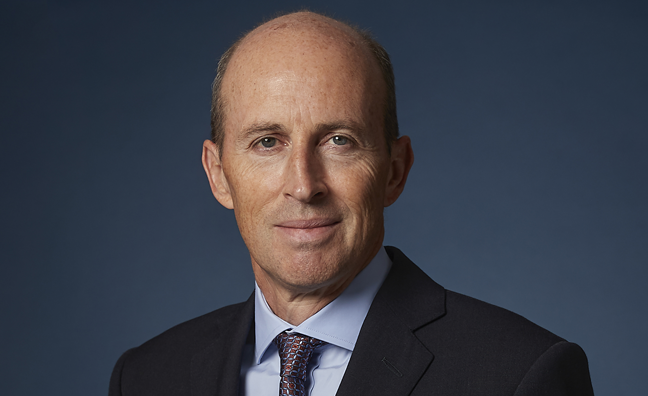PPL CEO Peter Leathem looked to the future during the collection society’s virtual AGM.
Leathem spoke about how PPL continued to deliver a high level of service to its performer and recording rights-holders throughout the pandemic, and looked to the future as the UK prepares to further lift lockdown restrictions.
“I am cautiously optimistic about PPL’s UK collections and we expect our revenues will recover this year to beat our 2020 numbers, although they will not yet exceed pre-Covid levels,” he said.
Leathem added: “We have been encouraged by the number of businesses who have contacted PPL PRS Ltd about licensing music after restrictions eased and they were able to open again.
“We are also excited to see what looks like the start of the return of live music, including the BRIT Awards, which welcomed a 4,000-strong audience at the O2 on the May 11 as part of government research into how live events could work after the pandemic. It was a thrill for me to join a number of my PPL colleagues at the BRITs as we were all reminded just how much we had missed watching live music performances.”
The AGM detailed 2020’s financial results, which can also be found in PPL’s newly-published annual review. As reported by Music Week, PPL’s total revenue reached £225.7 million – a 17% decrease on 2019.
In 2020 PPL also distributed over £260m, with over 135,000 performers and recording rights-holders, either as members of PPL, VPL or another collective management organisation, receiving at least one payment – both record figures for a single financial year.
We expect our revenues will recover this year to beat our 2020 numbers
Peter Leathem
In his speech Leathem highlighted how, by working with its partners around the world, PPL was helping to grow the neighbouring rights industry through projects such as RDx, a data exchange service established by IFPI and WIN. Projects such as this will make the sharing of data and information across the recorded music industry more accurate and efficient, in turn resulting in more accurate and efficient royalty payments.
“RDx became fully operational in 2020, providing a single point where recording rights-holders and rights-holder CMOs can submit and access recording data,” he said. “It welcomed its first data sources last year with Universal Music, Sony Music and Beggars all successfully adding their sound recording data to the service, while Warner followed suit earlier this year.”
Finally, one year on from the death of George Floyd and Blackout Tuesday, he re-stated PPL’s commitment to bringing about a more equitable, diverse and inclusive music industry.
“This time last week marked the first anniversary of Blackout Tuesday, a day of collective action to address the issue of racism,” he said. “For us at PPL, it served as an opportunity to take stock and consider what more we could do to make real and meaningful change.
“Although equity, diversity and inclusion has long been an important area of focus for PPL, over this past year we have introduced a number of policies and initiatives, which we recognise is only the start of the process, but we are trying to proactively drive change.”
During the AGM, director of people and organisational development Kate Reilly interviewed Paulette Long, music consultant, board director and publisher, who has been working with PPL on its diversity agenda. They spoke about PPL’s work to develop and embed a culture of equity, diversity and inclusion, alongside the music industry’s renewed drive and willingness to change for the better.
Elsewhere, the meeting included an address from chairman John Smith, alongside presentations from CFO Chris Barton, COO Christine Geissmar and director of membership and communications Sarah Mitchell. Julian French (Universal Music Group), Nick Hartley (PIAS) and Michael Smith (Sony Music Entertainment UK) were re-elected as PPL board directors.












